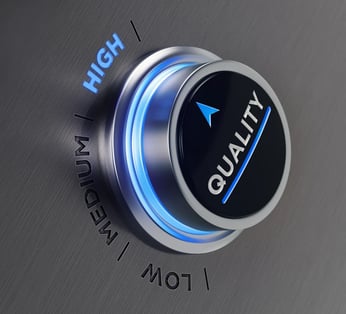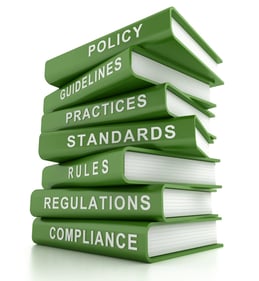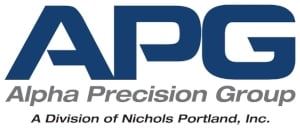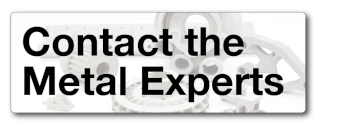
What to Look For in a Metal Injection Molding Supplier: MIM Vendors Examined
Selecting the right metal injection molding (MIM) supplier plays an integral role in shaping the success of your projects. Whether you’re creating a basic component or scaling the production of a revolutionary product, the journey with your supplier should be one of collaboration, precision, and trust.
In this guide, we’ll help you navigate the complexities of this decision, so you can find a MIM supplier that isn’t just a vendor, but an extension of your team.
11 Qualities of the Best Metal Injection Molding Companies
Not all metal injection molding suppliers are created equal – while many offer standard services, only the finest stand out by showcasing a unique blend of expertise, innovation, and commitment.
Below are the main qualities to consider when choosing the best MIM supplier for your project:
1. Material Expertise
The foundational essence of MIM lies in the materials used. This makes a supplier’s expertise in materials not just an asset, but a necessity. Here’s what to look for:
Range of Materials
A diverse range of materials demonstrates a supplier’s versatility and adaptability to project requirements. Whether you’re looking  for stainless steel, titanium, or specialty alloys, the supplier should be equipped to cater to your specific needs. This variety not only guarantees flexibility in meeting design requirements but also ensures that your end component possesses the desired characteristics, from durability to finish.
for stainless steel, titanium, or specialty alloys, the supplier should be equipped to cater to your specific needs. This variety not only guarantees flexibility in meeting design requirements but also ensures that your end component possesses the desired characteristics, from durability to finish.
Knowledge of Properties & Behaviors
It’s also vital for your supplier to have an in-depth understanding of how materials behave during the MIM process. Different metals have unique melting points, flow characteristics, and shrinkage rates. A MIM supplier’s expertise in this realm can mean the difference between a successful project and one riddled with complications. This knowledge not only aids in predicting and troubleshooting potential issues but also ensures the finished component retains the desired structural integrity and aesthetics.
2. Experience & Reputation
Experience doesn’t always translate to expertise. A MIM supplier’s history provides valuable insights into their capabilities, professionalism, and the quality of their work.
Years in Business & Relevant Industry Experience
Longevity in the business is often a testament to a supplier’s consistent performance, adaptability, and resilience. Suppliers that have weathered industry shifts likely possess a deep understanding of the evolving landscape. 
However, it’s also essential to gauge their experience in projects similar to yours. A supplier well-versed in your industry can anticipate challenges and offer tailored solutions.
Testimonials/Case Studies
The experiences of past clients offer a transparent window into a MIM supplier’s capabilities. Detailed case studies provide a roadmap of the supplier’s approach, problem-solving skills, and project outcomes. Testimonials offer snippets of customer satisfaction and the supplier’s relationship management.
Industry Recognition/Awards
Awards and recognition aren’t just decorative feathers in a cap; they’re endorsements from the industry itself.
Recognition can signify excellence, innovation, and a commitment to industry standards. They can serve as benchmarks when comparing potential suppliers, ensuring you align with industry leaders and innovators.
3. Technological Capabilities
The role of technology is paramount in the realm of metal injection molding. When assessing a potential MIM supplier’s technological capabilities, consider the following factors:
Modern Machinery & Maintenance Protocols
The quality of machinery plays a pivotal role in determining the quality of the end product. Modern machinery often comes  equipped with features that ensure higher precision, efficiency, and reliability. However, even the best machinery can falter without regular maintenance – this is why it’s essential to understand a supplier’s maintenance protocols.
equipped with features that ensure higher precision, efficiency, and reliability. However, even the best machinery can falter without regular maintenance – this is why it’s essential to understand a supplier’s maintenance protocols.
Frequent, preventative maintenance checks reduce downtime, ensure consistent quality, and prolong the machinery’s life. A supplier diligent about maintenance is likely to deliver components with fewer defects and delays.
CAD/CAM Capabilities
Computer-Aided Design (CAD) and Computer-Aided Manufacturing (CAM) are the cornerstones of modern manufacturing, allowing for precision in design and ensuring the manufacturing process aligns with design blueprints.
A MIM supplier with robust CAD/CAM capabilities can quickly adapt to design changes, ensure your components match design specifications, and even suggest design improvements for manufacturability.
Advanced Technologies Incorporated
The integration of advanced technologies like real-time monitoring and automation can be game-changers.
Real-time monitoring provides transparency, allowing potential issues to be identified and addressed swiftly. Automation increases production speed, reduces human error, and ensures consistency in quality.
4. Design Support
A component’s journey from conception to production involves many challenges. Supplier support during the design phase is invaluable in navigating these challenges successfully.
Ability to Assist in Product Design for Manufacturability
Designing a product for aesthetics or functionality is one thing; designing it for efficient manufacturability is another. A MIM supplier that can provide insights into design tweaks or adjustments ensures your component isn’t just functional or aesthetically pleasing, but is also manufacturable at scale without compromising on quality.
Feedback Loop & Collaboration During the Design Phase
A seamless feedback loop during the design phase ensures your component evolves in alignment with both your vision and manufacturing realities. Collaborative tools, regular communication, and a willingness to adapt are signs that a MIM supplier values your input and views the relationship as a true partnership. Such collaboration can reduce iterations, speed up time-to-market, and ensure the end product aligns with your expectations.
5. Post-Processing & Finishing
The final touches on any component play a crucial role in determining its market readiness and appeal. The post-processing and finishing stages can dramatically impact both the aesthetic and functional quality of the final product.
Range of Available Finishing Options
Different components have specific finishing requirements, ranging from high-gloss polishing to specialized coatings that enhance durability or reduce friction. Assess the range of finishing options MIM suppliers offer:
- Polishing: Does the supplier offer varying degrees of polish, from matte finishes to mirror finishes?
- Coating: Are there multiple coating options available, such as anti-corrosion coatings, wear-resistant coatings, or aesthetic finishes? The availability of a broad spectrum ensures your component can be tailored to specific use cases or environments.
 In-House vs. Outsourced Finishing Processes
In-House vs. Outsourced Finishing Processes
A supplier’s decision to finish products in-house or outsource can significantly impact quality control, lead times, and costs:
- In-house finishing allows for tighter quality control and quicker adjustments. It can also lead to reduced lead times since transportation to a third-party facility is eliminated.
- Outsourced finishing: While this might offer a wider range of specialized finishes, a third-party facility may not maintain the same quality standards as your MIM supplier. Communication, coordination, and shipping may lead to potential delays.
6. Lead Times & Delivery
In today’s fast-paced market, timing can be as crucial as the quality of the product. Effective project management and logistical prowess are vital attributes for any MIM supplier.
Average Turnaround Times
Understanding a supplier’s average turnaround times helps set realistic expectations and plan product launches or market strategies accordingly. Factors influencing turnaround time include the complexity of the component, order volume, and the MIM supplier’s operational efficiency.
accordingly. Factors influencing turnaround time include the complexity of the component, order volume, and the MIM supplier’s operational efficiency.
On-Time Delivery Rates
Consistency in timely delivery is a strong indicator of a MIM supplier’s reliability. High on-time delivery rates suggest that the supplier has effective project management processes, understands the importance of deadlines, and prioritizes customer commitments.
Handling of Rush Orders
Unexpected demands or challenges can necessitate rush orders. Understanding how your supplier handles such situations is essential.
- Do they have the capacity and flexibility to expedite processes?
- Is there an additional cost involved?
- How does it impact the quality of the finished component?
7. Quality Assurance
A dedicated approach to QA ensures the end component meets or exceeds the set benchmarks. Keep the following in mind:
Certification Standards
Certifications serve as external validations of a MIM supplier’s commitment to quality. Look for industry-relevant certifications that signify adherence to globally recognized standards.
For instance, in metal injection molding, certifications such as ISO 9001 or IATF 16949 can indicate rigorous quality management practices.
 Inspection & Testing Processes
Inspection & Testing Processes
The QA process isn’t just about the final check – it’s a series of inspections and tests at various stages of manufacturing.
- Incoming Material Inspection: Ensures raw materials used are of the highest quality.
- In-Process Inspection: Regular checks during the manufacturing process can identify issues early on, reducing waste and ensuring the final component is free from defects.
- Final Inspection: Before the component leaves the facility, a comprehensive inspection ensures it meets all specifications and quality criteria.
It’s also important to understand the testing methodologies used. Are they using state-of-the-art equipment? How often is the testing machinery calibrated?
QC Measures in Place
Quality Control (QC) measures complement QA processes. While QA focuses on preventing defects, QC addresses defects after they occur. A reliable MIM supplier will have comprehensive QC measures in place, including statistical process control, root cause analysis, and corrective action procedures.
How Are Defects Handled?
Despite best efforts, defects can occur. What differentiates MIM suppliers is how they address these anomalies. Do they have a clear policy for informing clients? How quickly do they rectify the error? Is there a system for compensating clients if defects lead to substantial losses?
A proactive and transparent approach to defect management is a hallmark of a trustworthy MIM supplier.
8. Intellectual Property Protection
Intellectual property (IP) is the cornerstone of innovation. Protecting it isn’t just a legal requirement; it’s a matter of preserving a company’s competitive edge and reputation.
 Measures to Protect Client Intellectual Property
Measures to Protect Client Intellectual Property
A reliable MIM supplier will have systems in place to safeguard client IP. This might include secure servers, limited access to design files, and regular training for employees on the importance of IP protection.
Investigate their IT infrastructure: Are they using encrypted communication channels? How often do they conduct cybersecurity audits?
Non-Disclosure Agreements
A Non-Disclosure Agreement (NDA) is often the first line of defense against potential IP breaches. A well-written NDA will clearly define what constitutes confidential information, the obligations of both parties, the duration of confidentiality, and the ramifications of a breach.
Ensure your prospective supplier is willing to sign an NDA that aligns with your requirements and provides ample protection.
9. Cost Structures
Understanding your MIM supplier’s cost structure provides invaluable insight into where your budget is being allocated and the value you’re receiving in return.
 Transparency in Pricing
Transparency in Pricing
A transparent pricing structure allows for trust and open dialogue. Suppliers should provide clear itemized quotes, detailing costs associated with materials, labor, machinery usage, post-processing, and any other pertinent expenses. Such clarity ensures there are no hidden charges and facilitates informed decision-making.
Cost-Savings Suggestions & Value-Engineering Capabilities
A MIM supplier committed to a true partnership will often provide insights on cost-saving without compromising product integrity. This might involve suggesting alternative materials, redesigning for easier manufacturability, or optimizing production runs. Their expertise in value engineering – the practice of refining designs and processes to maximize value – can lead to both financial savings and enhanced product quality.
10. Communication & Customer Service
The manufacturing process isn’t just about machines and materials – it’s about people and the relationships they forge.
Ease of Communication
A smooth communication channel is essential for project success. Whether it’s through regular updates, easy accessibility for queries, or prompt responses, ease of communication ensures both you and your supplier remain aligned and any potential issues are addressed promptly.
queries, or prompt responses, ease of communication ensures both you and your supplier remain aligned and any potential issues are addressed promptly.
Dedicated Project Managers or Points of Contact
Having a dedicated individual or team to manage your project can streamline communication and foster a deeper understanding of your requirements. This individual becomes the bridge between your vision and the production floor, ensuring your specifications, timelines, and quality standards are met.
After-Sales Support
The relationship between you and your MIM supplier shouldn’t end once the product is delivered. After-sales support, be it in the form of addressing concerns, assisting with assembly or usage, or managing returns and replacements, reflects a supplier’s commitment to customer satisfaction and long-term partnership.
11. Environmental & Ethical Practices
In today’s globalized economy, manufacturing practices have broad-reaching impacts. Responsible sourcing and production not only benefit the environment and communities but also enhance a brand’s reputation and consumer trust.
 Recycling and Waste Management Practices
Recycling and Waste Management Practices
Effective waste management, especially in metal processing, is essential. A conscientious supplier will have processes in place for recycling excess material and responsibly disposing of waste. Such practices reduce environmental impact and, often, manufacturing costs.
Ethical Sourcing of Materials
The origins of raw materials matter. Ethical sourcing ensures materials are obtained responsibly, without exploiting workers or harming the environment. Aligning with a MIM supplier who prioritizes ethical sourcing demonstrates your brand’s commitment to global responsibility.
Forging the Right Partnership: The Final Piece in Metal Injection Molding Success
The right metal injection molding partner not only makes sure that your immediate requirements are met with precision and efficiency, but also ensures for strong, resilient, and long-lasting partnership. As you navigate the process of finding your ideal metal injection molding supplier, remember that it’s not just about transactions – it’s about forging partnerships that drive innovation, maintain quality, and ultimately, fuel growth.
Armed with this knowledge, you’re now poised to make an informed decision, ensuring your projects not only shine in quality but also resonate with values and dedication.
Do you have questions about Metal Injection Molding? Reach out to one of our experts today!

